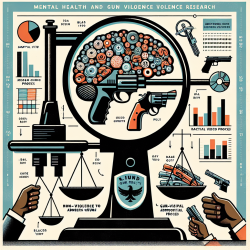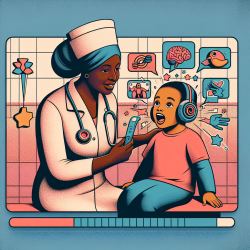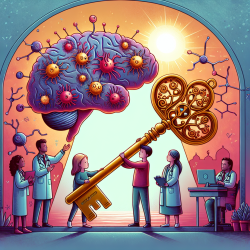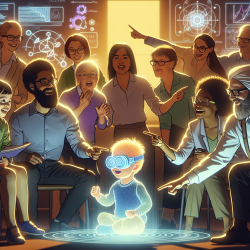Introduction
The persistent narrative that mass shootings are predominantly the result of mental illness has been both misleading and detrimental to understanding the complexities of gun violence in America. The research article "Mental Illness, Mass Shootings, and the Future of Psychiatric Research into American Gun Violence" challenges this notion and offers a comprehensive strategy for future research. As practitioners in the field of mental health, it is crucial to embrace these findings to enhance our understanding and develop effective interventions.
Understanding the Complexities
Research indicates that acts of mass violence are not solely driven by diagnosable psychopathology in isolated individuals. Instead, these motivations should be examined within larger social structures and cultural scripts. This approach necessitates moving beyond simplistic profiling and media-driven narratives that often stigmatize individuals with mental illness.
Addressing Racial Bias
The correlation between violence and mental illness must be scrutinized for evidence of racial bias within the systems that define and record psychiatric diagnoses. Often, racial and ethnic minorities are portrayed differently in media narratives, which can skew public perception and policy-making. Practitioners must be aware of these biases and advocate for research that accounts for these disparities.
Incorporating Social and Political Determinants
To effectively address gun violence, research should incorporate social, cultural, legal, and political aspects of firearm access. This interdisciplinary approach can help in understanding how these dimensions contribute to gun violence as a public health issue. Mental health professionals have a pivotal role in advocating for policies that are informed by comprehensive research.
Community Engagement
Effective interventions require the engagement of researchers with affected communities and stakeholders in gun violence prevention. This engagement can help dismantle the stigma associated with mental illness and violence, allowing for a broader discussion on community safety and resource allocation.
Conclusion
The research underscores the need for a paradigm shift in how we approach gun violence. By moving beyond the "mentally ill shooter" framework, we can better understand the multifaceted nature of gun violence and develop policies that are both effective and equitable. Practitioners are encouraged to delve deeper into this research to foster evidence-based solutions.
To read the original research paper, please follow this link: Mental Illness, Mass Shootings, and the Future of Psychiatric Research into American Gun Violence.










